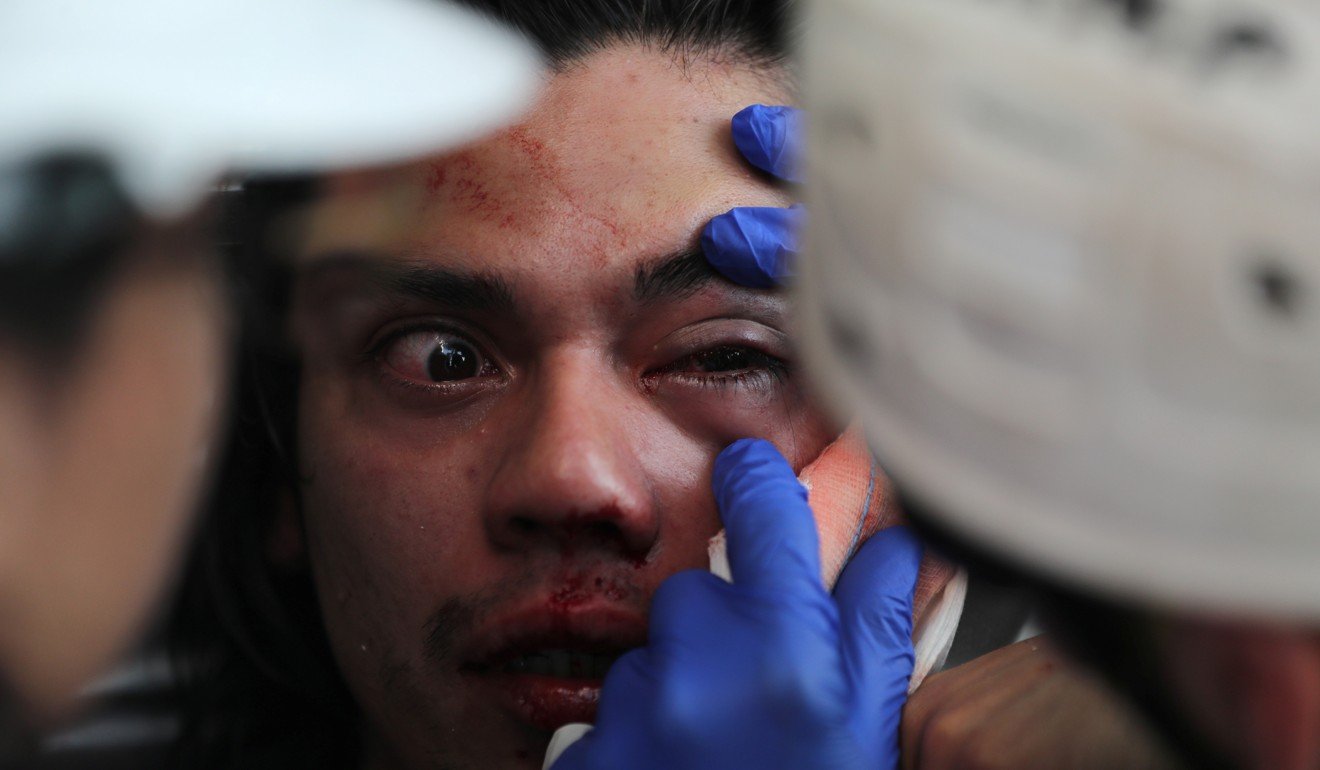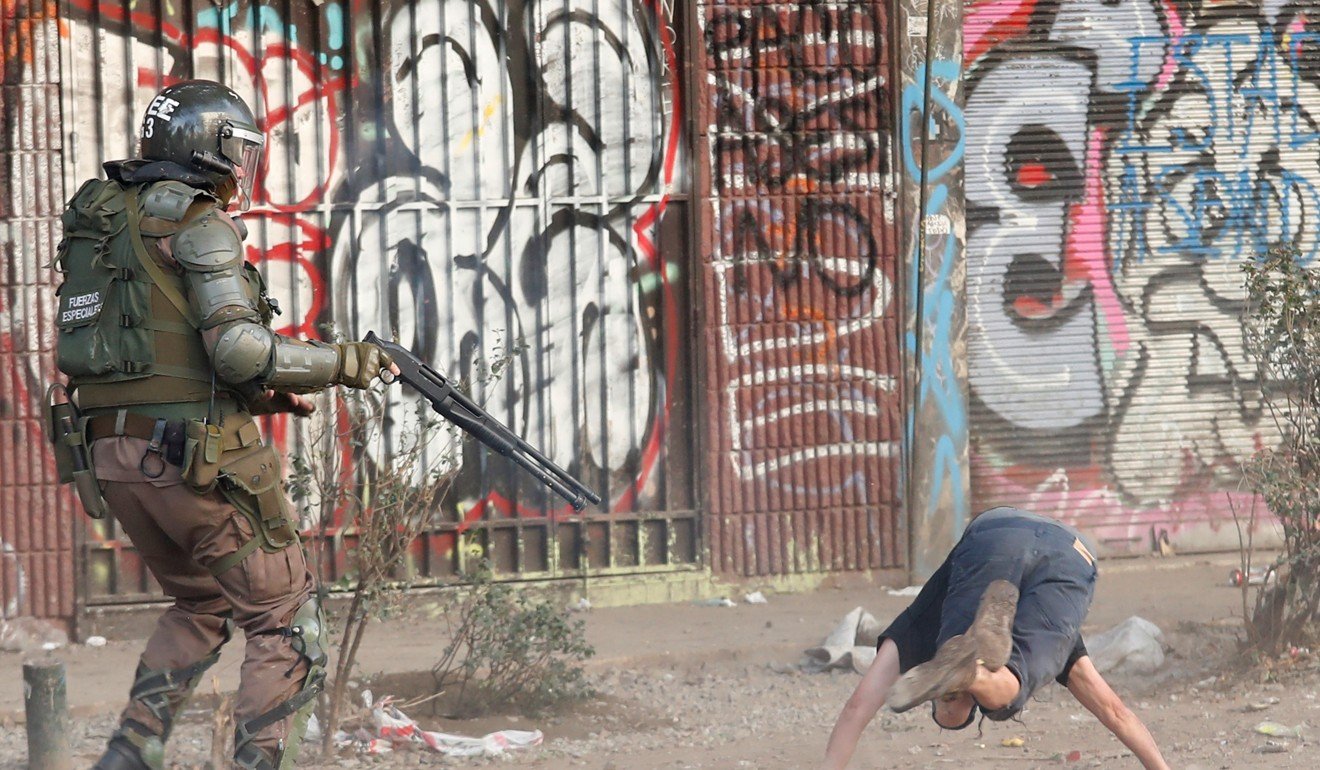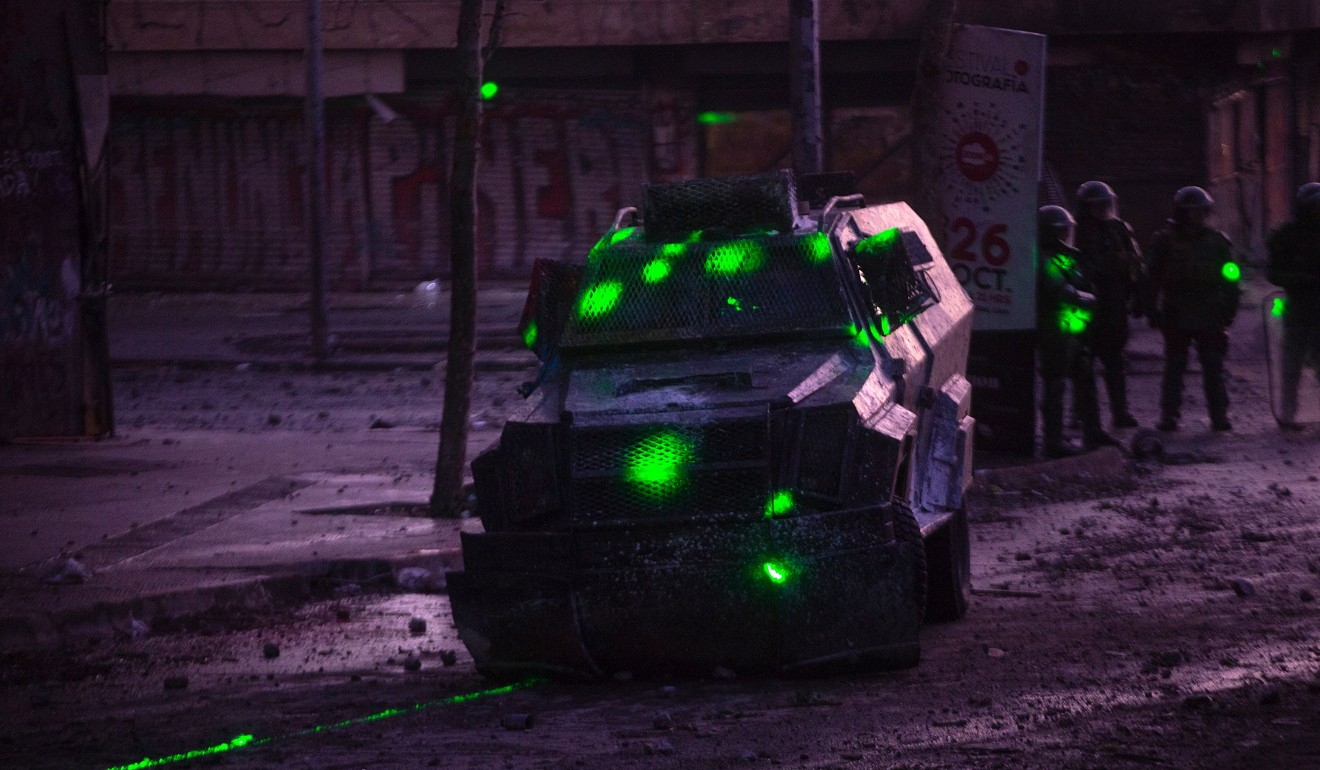Last week, Chile’s main medical body said at least 230 people had lost sight after being shot in an eye with lead or rubber projectiles while participating in demonstrations. Of those, at least 50 people will need prosthetic eyes.
“We are facing a real health crisis,” said Dr Patricio Meza, vice-president of the Medical College of Chile.
Police clash with demonstrators during a protest in Santiago. Photo: Reuters
Share:
“In three weeks, we have had the highest number of cases involving serious ocular complications due to shots in the eye.”
At demonstrations, it’s common to see police firing pellet guns at crowds. Often, “they’re firing at 90 degrees, which is to say, directly at the face,” Meza said.
He said most of the injured say it’s the national police force – known as the Carabineros – who are the ones firing.
Chile’s embattled president asks ‘all ministers to resign’ amid massive protests
Police have also been accused of stopping rescuers helping a dying protester.
Chile’s independent human rights watchdog said it would file a formal complaint for murder against police officers who allegedly prevented paramedics from attending a heart attack victim amid a protest last Friday.
Security forces firing tear gas, rubber bullets and water cannons made it impossible for rescuers to properly treat the victim, Chile’s publicly-funded National Institute for Human Rights said.
Twenty-nine year old Abel Acuna died shortly after at a nearby Santiago hospital.
Demonstrators aim laser pointers are a police armoured vehicle in Santiago. Photo: AFP
Both the ambulance and a rescuer were hit by projectiles as they attempted to help Acuna, the institute said.
The case joins more than 1,000 others currently under investigation by public prosecutors. Accusations of abuses by security forces ranging from torture to sexual violence have multiplied during weeks of anti-government unrest.
President Pinera, a billionaire businessman-turned-politician, is now Chile’s most unpopular leader since the return to the democracy, according to pollster Cadem.
He exhausted much of his political capital at the start of the demonstrations when he
on the protesters and called on Chileans to choose sides
Pinera backtracked within days and apologised, but it is hard for many Chileans to accept his new caring, compassionate note. No march goes by without calls for his resignation.
1 million Chileans take to streets of Santiago to demand president’s resignation
On Sunday, Pinera also praised an agreement reached last week under which Chile will draft a new constitution to replace the current one that dates back to the rightwing dictatorship of Augusto Pinochet, who ruled from 1973 to 1990.
Many in Chile see this step – getting rid of a charter that smacks of a dark, repressive chapter in the country’s past – as a way to help end the crisis.
“If the people want it, we will move toward a new constitution, the first under democracy,” Pinera said in a speech from the presidential palace.
Pinochet’s government killed or tortured thousands of suspected leftists while imposing a rigid free-enterprise model that privatised a large share of social services such as health care, pensions and education, an approach embedded in the constitution.
Even though Pinochet left power in 1990 after losing a referendum to extend his term, succeeding centre-left governments found it impossible to replace his constitution – in part because the document itself created such difficult standards for passing amendments – though some reforms were made in 2005.
Lawmakers in Chile’s National Congress agreed to hold the vote in April 2020.
Agence France-Presse, Reuters, Associated Press, Bloomberg



